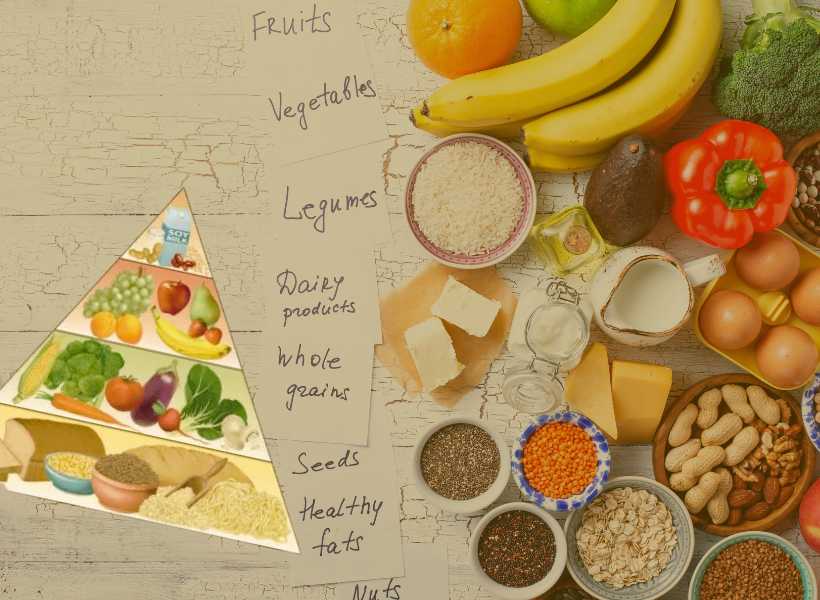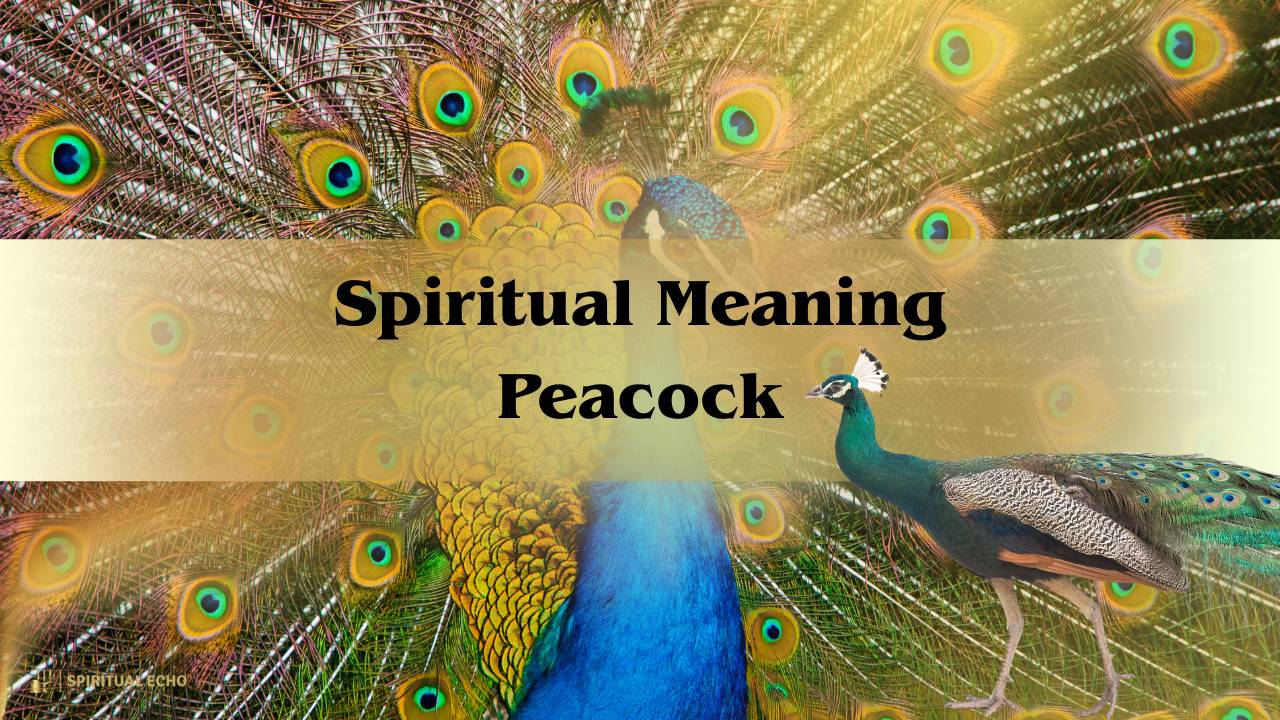Vegetarianism, the practice of keeping away from meat, and spirituality, one’s inner connection with the universe, often intersect in a harmonious way.
Many people believe that adopting a vegetarian diet promotes a sense of compassion and mindfulness towards all living beings. By choosing plant-based foods, individuals feel they align with a higher spiritual purpose, nurturing a sense of inner peace and ethical alignment.
This connection between vegetarianism and spirituality underlines the impact our dietary choices can have on both our physical health and our spiritual growth.
Is vegetarianism necessary for spiritual growth? The necessity of vegetarianism for spiritual growth is a topic of debate. Some people believe that a vegetarian diet encourages compassion and aligns with spiritual values. Others argue that spiritual growth depends on individual beliefs and practices, with diet being just one aspect. Whether vegetarianism is necessary for spiritual growth varies among individuals and their personal beliefs.
- Understanding The Connection Between Vegetarianism And Spirituality
- What Happens When You Stop Eating Meat Spirituality: Vegan
- Different Religious And Spiritual Traditions’ Perspectives On Vegetarianism
- Benefits Of Vegetarianism For Physical And Mental Well-Being: Inner Essence
- Various Spiritual Beliefs And Their Views On Vegetarianism
- How Vegetarianism Can Cultivate Compassion And Empathy
- Exploring Alternative Sources Of Protein For Vegetarians
- The Environmental Benefits Of A Vegetarian Lifestyle
- Why Some Individuals Choose Vegetarianism For Spiritual Reasons
- The Impact Of Dietary Choices On One’s Energy And Spiritual Practices
- Debunking Common Misconceptions About Vegetarianism And Spirituality
- Listening To Your Body’s Needs And Finding Balance In Your Diet
- Tips For Incorporating Vegetarianism Into A Spiritual Practice
- FAQ About Vegetarianism & Spirituality
- Final Thought
Understanding The Connection Between Vegetarianism And Spirituality 🥦
The connection between vegetarianism & spirituality reveals a deep relationship between one’s dietary choices and inner beliefs. Many view vegetarianism as a path to spiritual enlightenment.
As it develops kindness and reverence for all life. By abstaining from meat, individuals often feel more in harmony with their spiritual values and a sense of inner peace.
It’s not essential for everyone’s spiritual journey, this connection underlies the impact our food choices can have on our spiritual growth.
Food And Spirituality 🥬
Many cultures and religions emphasize the significance of food in nourishing not just the body, but also the soul. Continuous eating can be a spiritual practice in itself, promoting gratitude and awareness.
Certain dietary choices, like vegetarianism or fasting, are often embraced to deepen one’s spiritual connection.
Food serves as a bridge between the physical and spirituality, enriching a sense of holism and reverence.
Veganism And Spirituality 🍆
Veganism and spirituality often intersect, driven by principles of compassion and ethical alignment.
Many people believe that adopting, A vegan lifestyle, which excludes all animal products, Bevelop a powerful connection with the universe and encourages a sense of inner harmony.
This alignment with one’s spiritual values underlying the idea that our dietary choices can impact, not only our physical health but also our spirituality as well.

What Happens When You Stop Eating Meat Spirituality: Vegan
For some individuals, this dietary shift brings a greater sense of spiritual awareness. Many individuals believe that avoiding meat connects with principles of compassion for all life forms.
This change can lead to a deeper connection with one’s spiritual values and a greater sense of inner peace. The impact on spirituality varies among individuals, as it depends on personal beliefs and practices.
Spiritual Awakening Vegetarian 🍅
A spiritual awakening accompanies the choice to become vegetarian. This lifestyle change, driven by compassion for all living beings, can lead to a spiritual transformation.
Many people find that adopting a vegetarian diet cultivates a intensify sense of awareness, empathy, and a stronger connection with their inner selves, contributing to their spiritual journey.
Different Religious And Spiritual Traditions’ Perspectives On Vegetarianism🍆
Various religious and spiritual traditions offer diverse perspectives on vegetarianism. Like Buddhism and Jainism, promote it as a path to non-violence and spiritual growth.
Hinduism often encourages vegetarianism, while Abrahamic faiths like Christianity and Islam do not mandate it but have vegetarian followers.
These differences highlight how dietary choices can reflect and intersect with one’s religious and spiritual beliefs, showing the rich tapestry of perspectives within our global spiritual landscape.
Benefits Of Vegetarianism For Physical And Mental Well-Being: Inner Essence

The benefits of vegetarianism increase to both physical and mental well-being. A plant-based diet is often associated with reduced risks of chronic illnesses like heart disease and diabetes.
It can also lead to lower stress levels and improved mood, contributing to better mental health. Vegetarianism builds mindfulness about food choices, increasing a positive relationship with one’s body and the environment.
Adopting a vegetarian diet can be a holistic approach to enhancing one’s overall health.
Various Spiritual Beliefs And Their Views On Vegetarianism 🥕
Various spiritual beliefs offer different views on vegetarianism. For example, Hinduism promotes vegetarianism as a means of non-violence and spiritual purity.
Buddhism emphasizes compassion for all living beings through a plant-based diet. In contrast, some Abrahamic religions like Christianity and Islam do not prescribe vegetarianism but encourage ethical treatment of animals.
These diverse perspectives highlight how spirituality intersects with dietary choices, shaping individual beliefs and practices around the world.

How Vegetarianism Can Cultivate Compassion And Empathy
Vegetarianism has the potential to cultivate compassion and empathy in individuals. By choosing a plant-based diet, people often become more aware of the impact of their food choices on animals and the environment.
This sharpened awareness can lead to a greater sense of empathy for all living beings. It encourages a shift towards a kinder and more compassionate way of life.
Enhancing the values of empathy, respect, and mindfulness in our relationship with the world around us.
Exploring Alternative Sources Of Protein For Vegetarians 🌽
Meat is a common protein source, but vegetarians rely on plant-based options like beans, lentils, tofu, and nuts. These alternatives are not only nutritious but also support a vegetarian diet’s health benefits.
Including diverse protein sources, vegetarians can ensure they meet their nutritional needs while enjoying a varied and satisfying diet.

The Environmental Benefits Of A Vegetarian Lifestyle
A vegetarian lifestyle offers significant environmental benefits like, Producing plant-based foods typically requires fewer resources, such as land and water, compared to raising livestock.
It generates fewer greenhouse gas emissions, contributing to a reduced carbon footprint. Choosing vegetarianism, individuals can actively participate in mitigating environmental challenges and promoting a more sustainable future for our planet.
Why Some Individuals Choose Vegetarianism For Spiritual Reasons 🥗
Many individuals urge for vegetarianism due to spiritual reasons. They believe abstaining from meat aligns with values like compassion and non-violence towards all life forms.
Adopting a plant-based diet, they seek a deeper spiritual connection, finding harmony with their beliefs. While not a universal choice, this spiritual dimension underlies how dietary decisions can be a powerful expression of one’s inner convictions and beliefs.
The Impact Of Dietary Choices On One’s Energy And Spiritual Practices
Dietary choices wield a significant influence on one’s energy levels and spiritual practices. A balanced diet, rich in nourishing foods, can enhance vitality and support physical health.
Which in turn can aid in sustaining spiritual practices. Conversely, excessive consumption of unhealthy foods may lead to lethargy and hinder one’s ability to engage fully in spiritual activities.
Cautious dietary choices play a crucial role in maintaining the necessary energy and focus for spiritual growth and exploration.

Debunking Common Misconceptions About Vegetarianism And Spirituality 🥒
While some believe that only vegetarians can be spiritually enlightened, spirituality is a personal journey influenced by various factors. Being vegetarian is just one way to align with spiritual values.
It’s crucial to recognize that spirituality can flourish through diverse paths, and dietary choices are only a part of this journey towards deeper self-awareness and connection with the universe.
Listening To Your Body’s Needs And Finding Balance In Your Diet
Listening to your body’s needs and finding balance in your diet is important for health. Paying attention to hunger cues and choosing foods that provide essential nutrients is a mindful approach.
It helps maintain a healthy weight, energy levels, and supports your body’s wellness.
Balancing different food groups allows for a well-rounded diet that meets your nutritional requirements, enhancing long-term health and vitality.
Tips For Incorporating Vegetarianism Into A Spiritual Practice 🥑

Start by gradually reducing meat consumption and start plant-based recipes. Cultivate mindfulness in your food choices, reflecting on the connection between your diet and spiritual values.
Engage in rituals like blessing your meals or expressing gratitude for the earth’s bounty. Seek support and guidance from like-minded communities or mentors.
The process is personal, and it’s about aligning your diet with your spiritual beliefs to encourage a deeper connection with the universe.
FAQ About Vegetarianism & Spirituality
What does God think about vegetarians?
Religious views on vegetarianism vary widely. Some faiths promote compassion and non-violence, aligning with vegetarianism, while others don’t specifically address it. Ultimately, what God thinks about vegetarians depends on one’s interpretation of their faith and its teachings.
Is veganism a spiritual belief?
Veganism can be considered a spiritual belief for some individuals who see it as a way to practice compassion, non-violence, and harmony with nature. However, its spiritual significance varies among people and belief systems.
What is the power of being vegetarian?
The power of being vegetarian lies in its potential to promote health, reduce environmental impact, and align with ethical values of compassion and non-violence towards animals. It empowers individuals to make positive choices for themselves and the planet.
Do you have to go vegan to be spiritual?
You don’t have to go vegan to be spiritual. While some connect veganism with spirituality, it’s a personal choice. Spirituality is diverse, and people can express it through various means, including dietary preferences, without the need for veganism.
Final Thought 💭
It’s essential to recognize dietary choices, such as vegetarianism and spirituality, which can deeply impact our physical and spiritual growth.
Whether driven by ethical, health, or spiritual reasons, what we eat can be a powerful expression of our values and beliefs.
Staying mindful of our food choices and their potential effects, we have the opportunity to nourish not only our bodies but also our spirits, fostering a sense of harmony and purpose in our lives.



































Leave a Reply